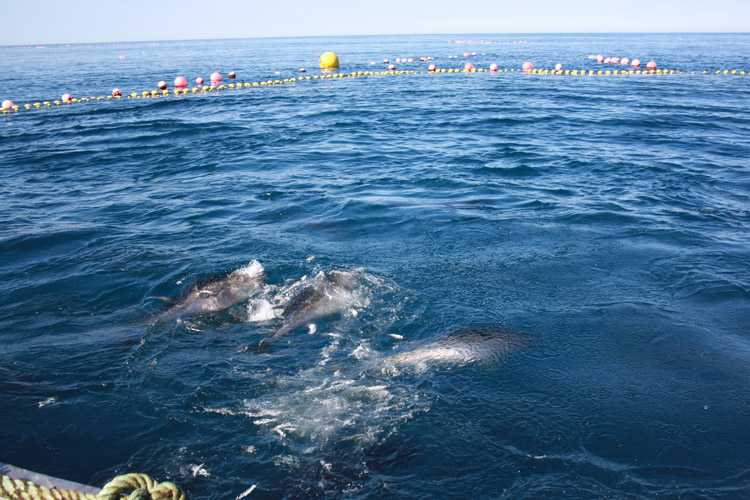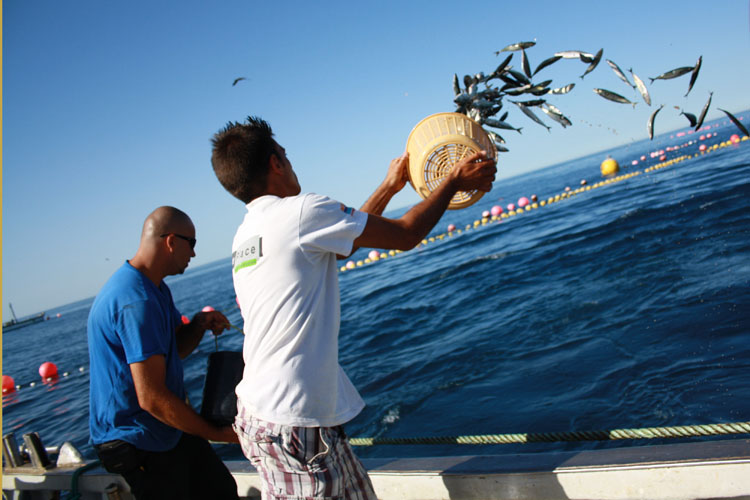 The PS deputy elected by Algarve Miguel Freitas wants the Government to take as priority the definitive consolidation of three licenses for the installation of tuna traps, in Portugal, in the negotiation that will take place in Brussels in December of this year. The Socialists are preparing to present a proposal to that effect in the Assembly of the Republic, around which the parliamentarian believes that "a broad consensus" will be created.
The PS deputy elected by Algarve Miguel Freitas wants the Government to take as priority the definitive consolidation of three licenses for the installation of tuna traps, in Portugal, in the negotiation that will take place in Brussels in December of this year. The Socialists are preparing to present a proposal to that effect in the Assembly of the Republic, around which the parliamentarian believes that "a broad consensus" will be created.
on the margin of a visit to the tuna traps of the company Real Atunara, located opposite Ilha da Barreta, in Faro and Praia do Barril, in Tavira, Miguel Freitas defended that it is “important to take advantage of this extraordinary moment to definitively consolidate the three licenses for the armament of bluefin tuna for Portugal”, with the European Union.
"Why? First, because there is a biological recovery of this species. Spain, this year, released 10 animals and Portugal 1200 tuna. This means that there is a frank recovery of this kind. On the other hand, there is the change that is taking place at the moment in the European Commission. These are two essential elements for Portugal's priority to be able to change the situation of the historical allocation of licenses for tuna traps», said the PS deputy to Sul Informação.
Currently, Portugal is only entitled, under the Common Fisheries Policy, to install a tuna trap. But it has three frames, two of which were visited by Miguel Freitas. “What we have seen is that, for five years, neither Spain nor Italy have used all the frames to which they are entitled. Portugal, in this way, has used a prerogative that exists, from a business point of view, to use two more frames than those to which it is entitled. This is the time to make this final and negotiate, in Brussels, in December, these three frames», he considered.
“What exists now is a historic regime. In other words, the attribution of frames is based on those that existed in a given year in Europe. This historic regime was implemented in Agriculture for many years, but in the last reform of the Common Agricultural Policy it ended. This is an opportune moment to end, also in fisheries, with this regime and for the allocation of frames to be made according to actual needs," he added.
«The PS will take a draft resolution to the Assembly of the Republic, in which we will defend that this matter be negotiated as a matter of priority. Because the question is how we do business. If this is not a priority, it is natural that Spain and Italy will continue to defend their positions. If it's a priority, I'm sure these two countries will understand that this is important to us and will show some openness. Because, in the final analysis, this is a matter for the European Union and not for the countries themselves», guaranteed Miguel Freitas.
Permission to “fatten” tuna should also be discussed.
 During the visit to the Real Atunara traps, company director Miguel Socorro drew attention to another issue, which affects tuna trap explorers in Portugal. The same historical regime on which the attribution of only one license to Portugal is based also prevents the “farming“, or “fattening”, of tuna in our country, unlike what happens, for example, in Spain.
During the visit to the Real Atunara traps, company director Miguel Socorro drew attention to another issue, which affects tuna trap explorers in Portugal. The same historical regime on which the attribution of only one license to Portugal is based also prevents the “farming“, or “fattening”, of tuna in our country, unlike what happens, for example, in Spain.
Thus, Portuguese farmers, despite keeping the tuna inside the traps and giving them food to grow, cannot sell a weight greater than that which entered the nets, despite having the same number of tuna. A competitive disadvantage, which forces you to release many fish that have been fed for months.
“We have to move from one mode of capture to another of fattening. This year, Real Atunara has already fed the tuna with 200 tons of fish [mackerel and herring]. And this food does not affect the final value that this company will earn», illustrated Miguel Freitas.
“In Spain, tuna aquaculture is recognized. Thus, the sale value is the quota captured plus the weight of the fattening. In Portugal, no”, he stressed. “Thus, it is also a priority for Portugal to have recognized not only the mode of capture, but also the fattening”, defended Miguel Freitas.
Miguel Socorro, for his part, explained that this “fattening” is done to increase the market value of the fish sold, but he does not hide that this is a competitive disadvantage. Also because the amounts involved in the commercialization of this species are very high.
According to Miguel Socorro, there are currently around 600 tuna in the company's two traps, which will be “sacrificed” in the coming weeks. Its destination is Japan, the result of an agreement that Real Atunara has with «one of the biggest Japanese dealers» and the deal could be worth more than one million euros, given the high market value of this fish. But, if the value of the fattening could also be included, this amount could rise substantially, in the order of 50 percent.


















Comments